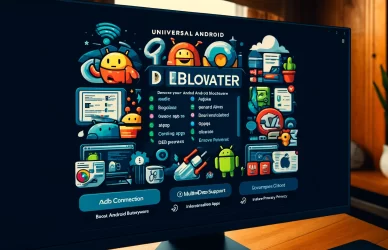Why Is Education Important and The Purpose Of Education?
Why Is Education Important and The Purpose Of Education? In this article, we will discuss the Purpose of Education and Why it is Important. The purpose of education is to make us better citizens. In a democracy, education fosters individuality, creativity, and self-expression. In addition, education helps us advance socially and politically. Hence, it is essential to promote education for everyone. But what is education exactly and how important is it in our lives?
Purpose
The Purpose of Education is to prepare people for life in a democratic society by facilitating the acquisition of knowledge and skills necessary for successful living. With education, people will be able to make choices and contribute to a better society by learning about their rights and responsibilities as citizens. Education is a process that never stops and is a lifelong process. Education helps students learn to think critically and make good decisions, and also develops a positive relationships with teachers, peers, and society.
The purpose of education can be accomplished through many different means. The four purposes of education suggest eight core competencies that prepare students for a variety of challenges in life. These core competencies include curiosity, creativity, critical thinking, collaboration, compassion, composure, and citizenship. These skills can help students become valuable members of society and contribute to the well-being of their community. A common goal is the empowerment of young people to make positive contributions to their society.
During early childhood, children’s brains are growing and learning at an incredible rate. Early education is crucial in setting up children for success later in life. In a meta-analysis of studies on early childhood education, 7-8 children out of every ten performed better than average. This is an excellent indication of the impact early childhood education has on young children’s lives. There are several reasons why education during this early stage of life is so crucial.
Regardless of the purpose of education, it is important to understand how it impacts a person’s personal life. One reason is to equip the student with the skills and knowledge needed to deal with bigotry in society. Education also helps students develop self-reflection. Today, students are exposed to harmful misinformation on mainstream media and social media that enslave their minds. The consequences of this can be devastating for people who lack a decent education.
Benefits
Investing in good education is important to improve the overall health of the population, not just the individual. A good education allows people to become more aware of their surroundings, and it exposes them to a variety of topics. It also pushes them to improve their own skills and knowledge. Furthermore, it builds responsibility. Students are required to manage their time effectively and to work for their own success. Lastly, education helps people develop their personalities. By exposing them to new ideas and concepts, they can make better choices, and ultimately lead to healthier lives.
Education helps people better understand other people’s experiences. It helps them understand what others are experiencing, and this builds empathy, which reduces the tendency to commit crimes. Compared to undeveloped countries, education in the United States has a positive effect on crime. A one-year increase in average education levels reduces state-wide arrests by 11%. Furthermore, studies show that high educational levels among both genders can reduce gender-based violence. A highly educated person is more likely to support gender equality and take steps to prevent such crimes. Moreover, a community that values education is less likely to suffer from terrorist attacks on its schools.
In addition to enlightening the mind, education can help in civic participation and improve productivity. It is important to note that merely having a degree does not guarantee success. Instead, it is a doorway to success, but it is an important part of getting an education. As mentioned, it enhances the skills and talents of people, including critical thinking and communication skills. Additionally, education helps people reach their basic job qualifications, so they can find better jobs.
Purpose of education
The purpose of education is to accelerate people’s mindful progress. By promoting critical thinking and proposing ideas for the common good, education enables people to function more effectively in society. Education, as a process, is an unstoppable process that trains people to think critically, be rational, and distinguish good from evil. Why Is Education Important and The Purpose Of Education? There are several purposes of education, and this article will discuss some of them. Moreover, the purpose of education is to enhance the quality of life for its participants.
The first purpose of education is to develop a person’s potential for self-determination. A student who is educated in this manner will develop shortcuts to success, which will lead to failure in later life. The second purpose of education is to cultivate civic responsibility and help students become responsible citizens. A well-informed citizen will be better equipped to fight against the corrosive effects of bigotry. Education should empower people to become engaged citizens.
The second purpose of education is to help students learn to learn and think critically. By mastering the skills necessary to understand complex ideas, students can develop the disposition to think critically. For example, a student who is interested in energy issues might want to design a robot that will clean up oil spills. Such students aren’t just taught to learn; they must also be encouraged to take responsibility for their learning and ask for help when necessary.
Why Is Education Important
Education has become a global phenomenon. Nearly every country now has universal primary education. Similar educational systems have also led to increased international student exchange. Programs such as the Soros Foundation have facilitated the exchange of students from all over the world. Another significant trend in international education is the introduction of international educational programs such as the International Baccalaureate and the Global Campus Online. Through these programs, students can access lecture files and class materials without having to travel.
Purpose of education in a democratic society
The purpose of education in a democratic society is to create inquiring minds, ignite courage of conviction, and foster rich interests in art, literature, and culture. Education should train people to become socially conscious human beings, capable of leading in a variety of social fields. In a democracy, every citizen is expected to exercise their rights and responsibilities effectively, thereby enhancing the democratic process. The broader purpose of education is to help individuals become more competent and responsible citizens who will be able to contribute to the success of democracy and their country.
Why Is Education Important and The Purpose Of Education?
A democratic curriculum takes into account local conditions, environmental requirements, and social outlooks. The social element must be highlighted and practical skills should be included. Education should be based on the principle of integration, and not divided into separate subjects. Differentiation should occur at a later stage but should remain integrated. It should also be flexible and dynamic. It should not limit children’s freedom to learn. Therefore, democratic education is vital to a democratic society.
Democracy requires its citizens to appreciate differences and embrace differences. This includes respecting one another. The acceptance of individual differences should be emphasized and celebrated, and students should be taught to respect their differences, rather than being punished for them. They should be encouraged to participate in shared decision-making. This means that the purpose of education in a democratic society should be to foster democratic values. And, of course, democracy requires an understanding of national and world history, basic democratic principles, and a commitment to the tenets of democracy.
Public education requires structure and coordination. It must balance the needs of future citizens with the development of society’s people. In 1916, John Dewey said that a democratic society repudiates external authority and requires education to create voluntary disposition and interest. The American philosopher’s book was very influential in shaping the ideas of educational policy in America and other countries. It has made education a social institution around the world and plays an important role in transforming societies.
Impact of education on a country’s future
Despite progress in primary school enrollment worldwide, the disparity between developed and developing countries in education remains striking. The developing world is over a hundred years behind the developed world in educational attainment, and the average educational level of a poor country in the 21st century remains below the levels of a developed country. Hence, increasing the share of public expenditure on education is essential to improving the prospects of the poorest countries.
A country’s future depends on its people’s education. People with better education tend to obtain better-paying jobs. Moreover, education allows people from lower-income families to change their lives. It helps a nation grow economically and contributes to a lower rate of poverty. By enhancing the level of education, a country’s economy will grow faster. Furthermore, educating more people means improving the quality of life for everyone.
Throughout the twentieth century, the global education movement blossomed.
In North America and Europe, the average number of years of schooling was over ninety-six in 2010. In contrast, in developing regions, mass schooling was largely a post-World War II phenomenon. In the developed world, there was little to no gap between the levels of education in the early twentieth century. By 2010, the global literacy rate had reached over ninety percent, but the gap was still less than eight years in Africa.
Global gender ratios have been on the rise across the world’s regions, indicating decreasing inequality in access to education. Eastern Europe and Latin America caught up to the developed economies in the 1980s, and gender gaps in these regions are almost completely closed. Why Is Education Important and The Purpose Of Education? As a result, the educational attainment ratios of these regions are now close to the 100% benchmark for equality in education. And as the digital divide widens, it is time to reimagine the future of education in the developing world.


